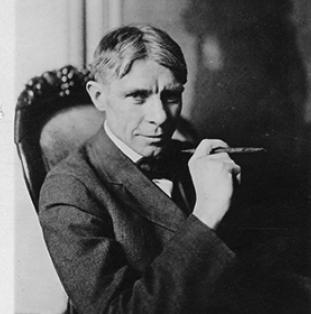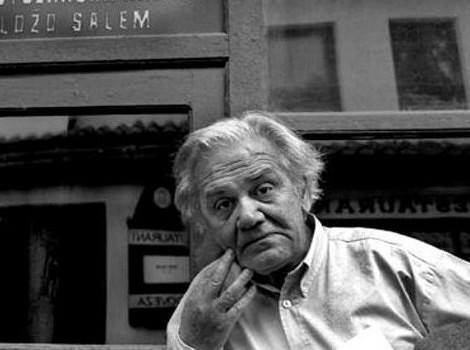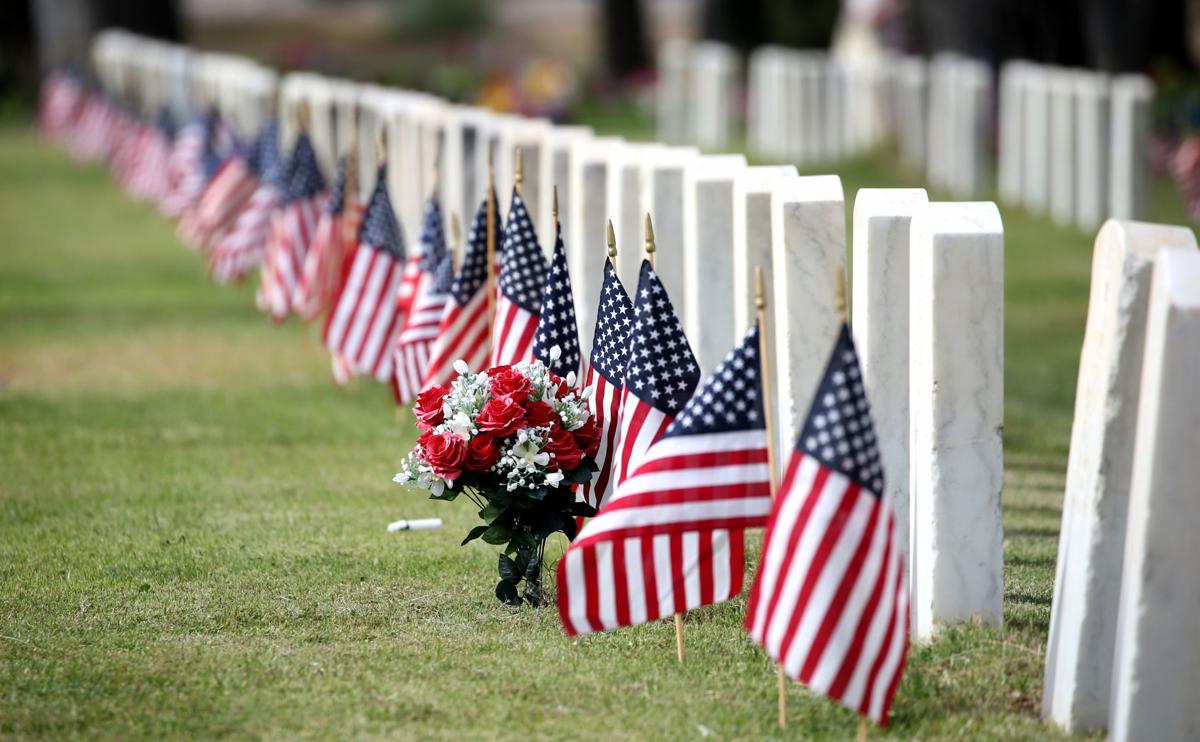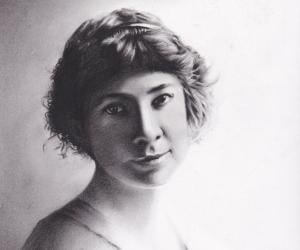-
1. "Tranquility Stirred" by Iris Tree. I love this quiet poem from a little-known minor Bloomsbury figure that was more often thought of as a muse than the creator, modelling for many artists of the time including being a favorite of photographer Man Ray. I think it's a nice subtle way to start thinking about war, from the perspective of citizens in war affected cities. Technically this poem isn't titled, but I didn't like the whole first line as a title as is often custom.
"Tranquility Stirred" by Iris Tree
Tranquility stirred by a sudden spasm,
Knives of rain that cut the silence,
Storms that rattle the bones of the forest,
Calm of the marble-terraced night
Charred with the spattering of rockets.
Drums will I hear and battles now,
And the long death howl of wolves by night,
Watching the moon on the forest tops,
Walking with delicate frightened steps
To the slaughter-house of a red sunrise.
2. "There Will Come Soft Rains" by Sara Teasdale is a very popular war poem, and rightly so. It's seen a bit of a resurgence lately which I like, often Teasdale is only associated with hard end rhyme, rhythmic love poems, but she wrote a lot of other poems over her many years writing. And people always think of poets as kind of hipsters, well Sara Teasdale won the Pulitzer before it was a Pulitzer, man. She received the first award that would later be known as the Pulitzer Prize for Poetry.
"There Will Come Soft Rains" by Sara Teasdale
There will come soft rains and the smell of the ground,
And swallows circling with their shimmering sound;
And frogs in the pools singing at night,
And wild plum trees in tremulous white,
Robins will wear their feathery fire
Whistling their whims on a low fence-wire;
And not one will know of the war, not one
Will care at last when it is done.
Not one would mind, neither bird nor tree
If mankind perished utterly;
And Spring herself, when she woke at dawn,
Would scarcely know that we were gone.
 3. "Grass" by Carl Sandburg is another of my favorite 'bigger picture' war poem, that makes you think beyond the battle, the horrors to the years beyond, beyond the pettiness and selfishness that all wars spring from. Sandburg actually won a Pulitzer for his biography of Lincoln, so he new a thing or two about Gettysburg, and his 2 Pulitzers for poetry say something about his handiness with a pen. Not that awards are everything, by any means, but, they're what they are: acknowledgement of achievement in that field.
3. "Grass" by Carl Sandburg is another of my favorite 'bigger picture' war poem, that makes you think beyond the battle, the horrors to the years beyond, beyond the pettiness and selfishness that all wars spring from. Sandburg actually won a Pulitzer for his biography of Lincoln, so he new a thing or two about Gettysburg, and his 2 Pulitzers for poetry say something about his handiness with a pen. Not that awards are everything, by any means, but, they're what they are: acknowledgement of achievement in that field."Grass" by Carl Sandburg
Pile the bodies high at Austerlitz and Waterloo.
Shovel them under and let me work—
I am the grass; I cover all.
And pile them high at Gettysburg
And pile them high at Ypres and Verdun.
Shovel them under and let me work.
Two years, ten years, and passengers ask the conductor:
What place is this?
Where are we now?
I am the grass.
Let me work.
 4. "Gettysburg, July 1 1863" by Jane Kenyon takes pretty much the opposite approach to the Battle of Gettysburg and takes us into the moment, following a wounded soldier. This is the first of what you'd call 'contemporary poetry' in this list, and you'll notice the language feels more modern, it's a little more conversational while still maintaining a good quality of sound and rhythm.
4. "Gettysburg, July 1 1863" by Jane Kenyon takes pretty much the opposite approach to the Battle of Gettysburg and takes us into the moment, following a wounded soldier. This is the first of what you'd call 'contemporary poetry' in this list, and you'll notice the language feels more modern, it's a little more conversational while still maintaining a good quality of sound and rhythm."Gettysburg, July 1 1863" by Jane Kenyon
The young man, hardly more
than a boy, who fired the shot
had looked at him with an air
not of anger but of concentration,
as if he were surveying a road,
or feeding a length of wood into a saw:
It had to be done just so.
The bullet passed through
his upper chest, below the collar bone.
The pain was not what he might
have feared. Strangely exhilarated
he staggered out of the pasture
and into a grove of trees.
He pressed and pressed
the wound, trying to stanch
the blood, but he could only press
what he could reach, and he could
not reach his back, where the bullet
had exited.
He lay on the earth
smelling the leaves and mosses,
musty and damp and cool
after the blaze of open afternoon.
How good the earth smelled,
as it had when he was a boy
hiding from his father,
who was intent of strapping him
for doing his chores
late one time too many.
A cowbird razzed from a rail fence.
It isn't mockery, he thought,
no malice in it. . . just a noise.
Stray bullets nicked the oaks
overhead. Leaves and splinters fell.
Someone near him groaned.
But it was his own voice he heard.
His fingers and feet tingled,
the roof of his mouth,
and the bridge of his nose. . . .
He became dry, dry, and thought
of Christ, who said, I thirst.
His man-smell, the smell of his hair
and skin, his sweat, the salt smell
of his cock and the little ferny hairs
that two women had known
left him, and a sharp, almost sweet
smell began to rise from his open mouth
in the warm shade of the oaks.
A streak of sun climbed the rough
trunk of a tree, but he did not
see it with his open eye.
 5. "Facing It" by Yusef Komunyakaa is a poem about the poet standing at the Vietnam War Memorial and remembering his time at war. It is one of my favorite Komunyakaa poems, though, I love his collection Dien Cai Dau so much I think you all should go out and buy it right now. All three of his poems in this list are from that collection, though he's most known for his collection Neon Vernacular which won him his Pulitzers... all of these dang Pulitzer winners making me feel inadequate over here. But onto the poem.
5. "Facing It" by Yusef Komunyakaa is a poem about the poet standing at the Vietnam War Memorial and remembering his time at war. It is one of my favorite Komunyakaa poems, though, I love his collection Dien Cai Dau so much I think you all should go out and buy it right now. All three of his poems in this list are from that collection, though he's most known for his collection Neon Vernacular which won him his Pulitzers... all of these dang Pulitzer winners making me feel inadequate over here. But onto the poem."Facing It" by Yusef Komunyakaa
My black face fades,
hiding inside the black granite.
I said I wouldn't
dammit: No tears.
I'm stone. I'm flesh.
My clouded reflection eyes me
like a bird of prey, the profile of night
slanted against morning. I turn
this way—the stone lets me go.
I turn that way—I'm inside
the Vietnam Veterans Memorial
again, depending on the light
to make a difference.
I go down the 58,022 names,
half-expecting to find
my own in letters like smoke.
I touch the name Andrew Johnson;
I see the booby trap's white flash.
Names shimmer on a woman's blouse
but when she walks away
the names stay on the wall.
Brushstrokes flash, a red bird's
wings cutting across my stare.
The sky. A plane in the sky.
A white vet's image floats
closer to me, then his pale eyes
look through mine. I'm a window.
He's lost his right arm
inside the stone. In the black mirror
a woman’s trying to erase names:
No, she's brushing a boy's hair.
 6. "At Lowe's Home Improvement Center" by Brian Turner is from his amazing second collection Phantom Noise, which, again, isn't what he's most known for, which would be his debut collection Here, Bullet. This wonderfully sad poem deals with PTSD and how soldiers bring the war home with them in a way that sort of expands on Komunyakaa's "Facing It". I highly recommend Phantom Noise as well. "Insignia" is a heartbreaking poem, but doesn't fit exactly with this theme.
6. "At Lowe's Home Improvement Center" by Brian Turner is from his amazing second collection Phantom Noise, which, again, isn't what he's most known for, which would be his debut collection Here, Bullet. This wonderfully sad poem deals with PTSD and how soldiers bring the war home with them in a way that sort of expands on Komunyakaa's "Facing It". I highly recommend Phantom Noise as well. "Insignia" is a heartbreaking poem, but doesn't fit exactly with this theme."At Lowe's Home Improvement Center" by Brian Turner
Standing in aisle 16, the hammer and anchor aisle,
I bust a 50 pound box of double-headed nails
open by accident, their oily bright shanks
and diamond points like firing pins
from M-4s and M-16s.
In a steady stream
they pour onto the tile floor, constant as shells
falling south of Baghdad last night, where Bosch
kneeled under the chain guns of helicopters
stationed above, their tracer-fire a synaptic geometry
of light.
At dawn, when the shelling stops,
hundreds of bandages will not be enough.
-----< O >-----
Bosch walks down aisle 16 now, in full combat gear,
improbable, worn out from fatigue, a rifle
slung at his side, his left hand guiding
a ten-year-old boy who sees what war is
and will never clear it from his head.
Here, Bosch says, Take care of him.
I'm going back in for more.
-----< O >-----
Sheets of plywood drop with the airy breath
of mortars the moment they crack open
in shrapnel. Mower blades are just mower blades
and the Troy-Bilt-Self-Propelled Mower doesn't resemble
a Blackhawk or an Apache. In fact, no one seems to notice
the casualty collection center Doc High marks out
in ceiling fans, aisle 15. Wounded Iraqis with IVs
sit propped against boxes as 92 sample Paradiso fans
hover in a slow revolution of blades.
The forklift driver over-adjusts, swinging the tines
until they slice open gallons of paint,
Sienna Dust and Lemon Sorbet and Ship's Harbor Blue
pooling in the aisle where Sgt. Rampley walks through—
carrying someone's blown-off arm cradled like an infant,
handing it to me, saying, Hold this, Turner,
we might find who it belongs to.
-----< O >-----
Cash registers open and slide shut
with a sound of machine guns being charged.
Dead soldiers are laid out at the registers,
on the black conveyor belts,
and people in line still reach
for their wallets. Should I stand
at the magazine rack, reading
Landscaping with Stone or The Complete
Home Improvement Repair Book?
What difference does it make if I choose
tumbled travertine tile, Botticino marble,
of Black Absolute granite. Outside,
palm trees line the asphalt boulevards,
restaurants cool their patrons who will enjoy
fireworks exploding over Bass Lake in July.
-----< O >-----
Aisle number 7 is a corridor of lights.
Each dead Iraqi walks amazed
by Tiffany posts and Bavarian pole lights.
Motion-activated incandescents switch on
as they pass by, reverent sentinels of light,
Fleur De Lis and Luminaire Mural Extérieur
welcoming them to Lowe's Home Improvement Center,
aisle number 7, where I stand in mute shock,
someone's arm cradled in my own.
The Iraqi boy beside me
reaches down to slide his fingertip in Retro Colonial Blue,
an interior latex, before writing
T, for Tourniquet, on my forehead.
7. "I'm Explaining a Few Things" by Pablo Neruda (translated by Nathaniel Tarn). The ending of this poem is so iconic, but the whole poem leading up to it is just magnificent and powerful. Neruda is mostly known for his love poems, like Sara Teasdale, but this poem about the Spanish civil war grabs you by the lapels
"I'm Explaining a Few Things" by Pablo Neruda
You are going to ask: and where are the lilacs?
and the poppy-petalled metaphysics ?
and the rain repeatedly spattering
its words and drilling them full
of apertures and birds?'
I’ll tell you all the news.
I lived in a suburb,
a suburb of Madrid, with bells,
and clocks and trees.
From there you could look out
Over Castille’s dry face:
a leather ocean.
My house was called
the house of flowers, because in every cranny
geraniums burst: it was
a good-looking house
with its dogs and children.
Remember, Raúl?
Eh, Rafael?
Federico, do you remember
from under the ground
where the light of June drowned flowers in your mouth?
Brother, my brother!
Everything
loud with big voices, the salt of merchandises,
pile-ups of palpitating bread,
the stalls of my suburb of Argüelles with its statue
Like a drained inkwell in a swirl of hake:
oil flowed into spoons,
a deep baying
of feet and hands swelled in the streets,
metres, litres, the sharp
measure of life,
stacked-up fish,
the texture of roofs with a cold sun in which
the weather vane falters,
the fine, frenzied ivory of potatoes,
wave on wave of tomatoes rolling down to the sea.
And one morning all that was burning,
one morning the bonfires
leapt out of the earth
devouring human beings -
and from then on fire,
gunpowder from then on,
and from then on blood.
Bandits with planes and Moors,
Bandits with finger-rings and duchesses,
Bandits with black friars spattering blessings
came through the sky to kill children
and the blood of children ran through the streets
without fuss, like children's blood.
Jackals that the jackals would despise,
stones that the dry thistle would bite on and spit out,
vipers that the vipers would abominate!
Face to face with you I have seen the blood
of Spain tower like a tide
to drown you in one wave
of pride and knives!
Treacherous
generals:
see my dead house,
look at broken Spain:
from every house burning metal flows
instead of flowers,
from every socket of Spain
Spain emerges
and from every dead child a rifle with eyes,
and from every crime bullets are bom
which will one day find
the bull's eye of your hearts.
And you will ask: why doesn’t his poetry
speak of dreams and leaves
and the great volcanoes of his native land?
Come and see the blood in the streets.
Come and see
the blood in the streets.
Come and see the blood
in the streets!
8. "Long Guns" by Carl Sandburg is a poem that takes a much different approach than his poem Grass, being much more loquacious and the recursiveness, the returning to guns seems apt for today. Sandburg's day being not that far from the first implementations of firearms in warfare, their destructive power was still fresh.
"Long Guns" by Carl Sandburg
Then came Oscar, the time of the guns,
And there was no land for a man, no land for a country,
Unless guns sprang up
And spoke their language.
The how of running the world was all in guns.
The law of a God keeping sea and land apart,
The law of a child sucking milk,
The law of stars held together,
They slept and worked in the heads of men
Making twenty-mile guns, sixty-mile guns,
Speaking their language
Of no land for a man, no land for a country
Unless… guns… unless… guns.
There was a child wanted the moon shot off the sky,
asking a long gun to get the moon,
to conquer the insults of the moon,
to conquer something, anything,
to put it over and run up the flag,
To show them the running of the world was all in guns.
There was a child wanted the moon shot off the day.
They dreamed… in the time of the guns… of guns.
9. "Camouflaging the Chimera" by Yusef Komunyakaa brings you right into the jungle of Vietnam with the poet on patrol. Very descriptive, this poem is both beautiful and tense—a very effective 'on-edge' effect that the poet has accomplished.
"Camouflaging the Chimera" by Yusef Komunyakaa
We tied branches to our helmets.
We painted our faces & rifles
with mud from a riverbank,
blades of grass hung from the pockets
of our tiger suits. We wove
ourselves into the terrain,
content to be a hummingbird’s target.
We hugged bamboo & leaned
against a breeze off the river,
slow-dragging with ghosts
from Saigon to Bangkok,
with women left in doorways
reaching in from America.
We aimed at dark-hearted songbirds.
In our way station of shadows
rock apes tried to blow our cover,
throwing stones at the sunset. Chameleons
crawled our spines, changing from day
to night: green to gold,
gold to black. But we waited
till the moon touched metal,
till something almost broke
inside us. VC struggled
with the hillside, like black silk
wrestling iron through grass.
We weren’t there. The river ran
through our bones. Small animals took refuge
against our bodies; we held our breath,
ready to spring the L-shaped
ambush, as a world revolved
under each man’s eyelid.
 10. "Luck in Sarajevo" by Izet Sarajlić (translated by Charles Simic) is a poem similar to "Grass" in that it says a great deal more than what is just on the page. The idea of feeling lucky at the end of the poem says so much about the sort of daily terror that those living in places of urban warfare are under.
10. "Luck in Sarajevo" by Izet Sarajlić (translated by Charles Simic) is a poem similar to "Grass" in that it says a great deal more than what is just on the page. The idea of feeling lucky at the end of the poem says so much about the sort of daily terror that those living in places of urban warfare are under."Luck in Sarajevo" by Izet Sarajlić
In Sarajevo
in the spring of 1992,
everything is possible:
you go to stand in a bread line
and end up in an emergency room
with your leg amputated.
Afterwards, you still maintain
that you were very lucky.
 11. "Belfast Confetti" by Ciaran Carson is a long-lined short poem also about living in a place of urban warfare, in this case instead of all out civil war as there was in Bosnia, "The Troubles" in Northern Ireland were more of what we consider today terrorism, though the IRA would certainly not consider themselves terrorists but freedom fighters. War is messy, confusing, and sadly, not going away anytime super soon. Maybe some day we'll settle disputes with giant robot fights like in the amazing B movie Robot Jox.
11. "Belfast Confetti" by Ciaran Carson is a long-lined short poem also about living in a place of urban warfare, in this case instead of all out civil war as there was in Bosnia, "The Troubles" in Northern Ireland were more of what we consider today terrorism, though the IRA would certainly not consider themselves terrorists but freedom fighters. War is messy, confusing, and sadly, not going away anytime super soon. Maybe some day we'll settle disputes with giant robot fights like in the amazing B movie Robot Jox."Belfast Confetti" by Ciaran Carson
Suddenly as the riot squad moved in it was raining exclamation marks,
Nuts, bolts, nails, car-keys. A fount of broken type. And the explosion
Itself – an asterisk on the map. This hyphenated line, a burst of rapid fire . . .
I was trying to complete a sentence in my head, but it kept stuttering,
All the alleyways and side-streets blocked with stops and colons.
I know this labyrinth so well – Balaklava, Raglan, Inkerman, Odessa Street –
Why can’t I escape? Every move is punctuated. Crimea Street. Dead end again.
A Saracen, Kremlin-2 mesh. Makrolon fae-shield. Walkie-talkies. What is
My name? Where am I coming from? Where am I going? A fusillade of question-marks.
12. "Anthem for Doomed Youth" by Wilfred Owen is a go to for Memorial Day poems, along with "Dulce et Decorum Est", so what's left to say? Let's just enjoy the poem.
"Anthem for Doomed Youth" by Wilfred Owen
What passing-bells for these who die as cattle?
— Only the monstrous anger of the guns.
Only the stuttering rifles' rapid rattle
Can patter out their hasty orisons.
No mockeries now for them; no prayers nor bells;
Nor any voice of mourning save the choirs,—
The shrill, demented choirs of wailing shells;
And bugles calling for them from sad shires.
What candles may be held to speed them all?
Not in the hands of boys, but in their eyes
Shall shine the holy glimmers of goodbyes.
The pallor of girls' brows shall be their pall;
Their flowers the tenderness of patient minds,
And each slow dusk a drawing-down of blinds.
13. ""You and I are Disappearing"" by Yusef Komunyakaa is a fragmented paratactic poem that stacks image on image to tell the narrative of a soldier scarred by an incident with a villager that he witnessed... The title is a quote from a thalidomide survivor, which was a drug given to pregnant women in the 50s to relieve nausea that resulted in sometimes dramatic birth defects. This poem really struck me and has stuck with me for years.
""You and I are Disappearing"" by Yusef Komunyakaa
—Bjöm Håkansson
The cry I bring down from the hills
belongs to a girl still burning
inside my head. At daybreak
she burns like a piece of paper.
She burns like foxfire
in a thigh-shaped valley.
A skirt of flames
dances around her
at dusk.
We stand with our hands
hanging at our sides,
while she burns
like a sack of dry ice.
She burns like oil on water.
She burns like a cattail torch
dipped in gasoline.
She glows like the fat tip
of a banker's cigar,
silent as quicksilver.
A tiger under a rainbow
at nightfall.
She burns like a shot glass of vodka.
She burns like a field of poppies
at the edge of a rain forest.
She rises like dragonsmoke
to my nostrils.
She burns like a burning bush
driven by a godawful wind.
-
Yeah, war's pretty damn awful. I hope on this, and on future Memorial Days we continue to be thoughtful of the tragedy and loss that war entails, are reticent to spring into armed conflict. Stay safe everyone.







/arc-anglerfish-arc2-prod-shropshirestar-mna.s3.amazonaws.com/public/FOGEW2OKMVFE7PSDYTDI4EL5XY.jpg)









